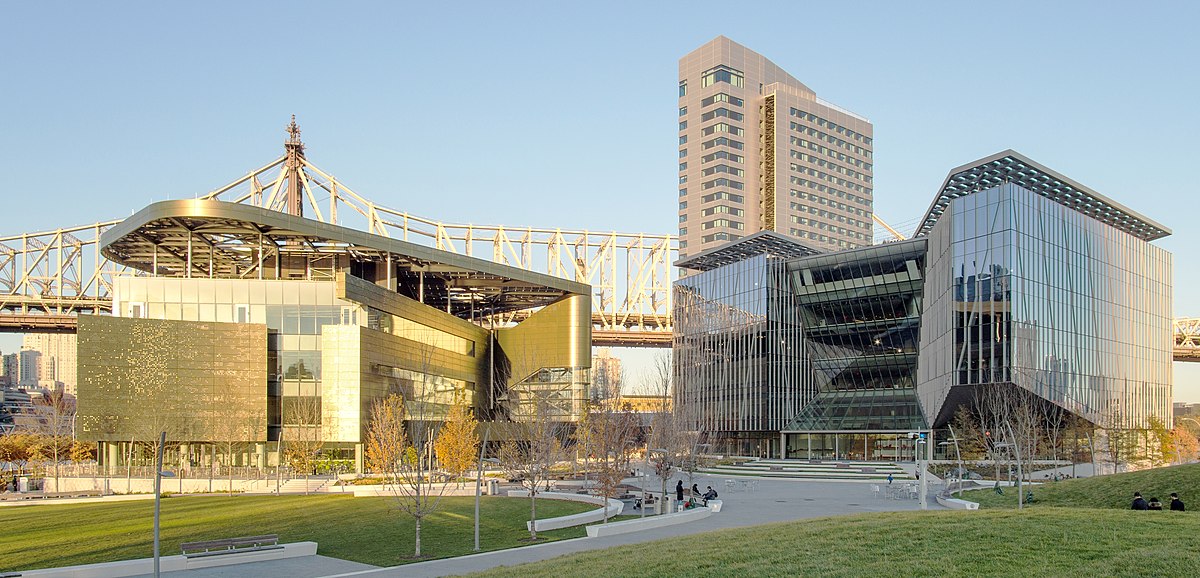23 Jul 2024 | Differences Between Princeton and Cornell for Engineering
0
314
Introduction
Only four hours apart, Cornell and Princeton are two of the country's best and oldest private schools.
Cornell is located in Ithaca, New York, a small city in New York's Finger Lakes region that is known for its natural beauty and whimsical commercial area.
Ithaca and Princeton, New Jersey, maintain a population of about 30,000 residents, which makes for a relatively intimate social scene.
Where the vibe is something eclectic, Princeton is cosmopolitan. Students could take a free transit shuttle to go shopping for basic needs while many Ithaca students would choose to walk or ride their bicycles.
Students at either school would expect the perfect student-to-faculty ratio, which is 4:1 at Princeton and 9:1 at Cornell. Many students who attended these colleges went on to win some of the most impressive accolades the world has to offer. Cornell alone boasts Nobel Prize author Toni Morrison, U.S. Supreme Court Justice Ruth Bader Ginsburg, as well as the founders of Hotel.com and Priceline.com.
While Cornell is home to 50 Nobel laureates, Princeton is not far behind at 40. The school's award winners include economics professor Paul Krugman, former U.S. President Woodrow Wilson, and physicist Richard Feynman.
Princeton Tigers vs. Cornell Big Red Bears: Read on to find out what admission requirements, acceptance rates and rankings, and other factors are there before deciding which one will best serve to launch your future!
Academic Offerings: Princeton vs Cornell Engineering
The academic culture at both schools is top-notch, but there are noticeable differences between Princeton engineering and Cornell engineeringcomparisons.
Princeton University
- Engineering School: Princeton's School of Engineering and Applied Science is often known for its strong focus on interdisciplinary work and pioneering areas of research.
- Curriculum:
- Undergraduate: The core is these three disciplines (math, science), and there is plenty of room for flexible electives.
- Graduate: Concentrates on advanced research and specialization opportunities.
- Unique Strengths: Princeton combines engineering with the liberal arts to promote creative and innovative thinking.
Cornell University
- Engineering School: Cornell College of Engineering is all about breadth and customization.
- Curriculum:
- Undergraduate: Encourage practical experience via design projects, lab work and internships.
- Graduate: Known for research-based and engineering programs in multiple fields of study.
- Unique Strengths: Cornell offers an unmatched diversity of engineering majors and minors, enabling students to tailor their education.
Read More: Decoding the UK University Transfer Process
Fun Question: Would you prefer to explore interdisciplinary learning at Princeton or focus on hands-on projects at Cornell?
Campus Life: Comparing Princeton and Cornell
Campus life plays a vital role in shaping your university experience. Here's how Princeton engineering differences and Cornell engineering comparison stack up in terms of student life.
Princeton University
- Environment: Located in Princeton, New Jersey, it boasts a serene campus with Gothic architecture.
- Community: Offers a close-knit atmosphere with a strong sense of tradition.
- Student Organizations:
- Engineering societies like IEEE and ASME.
- Extracurriculars in arts, sports, and service.
- Housing: The residential college system fosters mentorship and a sense of belonging.
Cornell University
- Environment: Nestled in Ithaca, New York, Cornell features stunning natural surroundings, including waterfalls and gorges.
- Community: A diverse and inclusive campus with a vibrant student body.
- Student Organizations:
- Over 1,000 clubs, including many for engineering students.
- Opportunities for global engagement through cultural organizations.
- Housing: Offers traditional dorms, themed housing, and cooperative living options.
Punch Line: Are you looking for a tight-knit academic setting or a large, dynamic community with a wide range of activities?
Research Opportunities: Engineering at Princeton vs Cornell
Research is a cornerstone of both Princeton and Cornell engineering programs, offering students the chance to engage in impactful projects.
Princeton University
- Focus: Encourages interdisciplinary research connecting engineering with sciences, humanities, and social sciences.
- Centres:
- Princeton Institute for the Science and Technology of Materials.
- Andlinger Center for Energy and the Environment.
- Undergraduate Research: Opportunities for students to collaborate on groundbreaking projects gaining hands-on experience.
Cornell University
- Focus: Covers a wide range of research areas, from nanotechnology to sustainable energy.
- Centres: Cornell Energy Systems Institute, Cornell NanoScale Facility.
- Undergraduate Research: Offers programs like the Cornell Research Experience for Undergraduates (REU) to immerse students in real-world problem-solving.
Fun Question: Which research area excites you the most—interdisciplinary projects at Princeton or diverse technical fields at Cornell?

Career Prospects: Princeton vs Cornell Engineering
When comparing career services and alum networks, both universities offer robust support systems that prepare engineering students for the future.
Princeton University
- Career Services: Personalized counselling, resume workshops, and networking events.
- Industry Connections: Strong ties with leading organizations for internships and job placements.
- Alumni Network: Global alumni who often mentor students and provide career opportunities.
Cornell University
- Career Services: Extensive resources, including career fairs, on-campus recruiting, and co-op programs.
- Industry Partnerships: Collaborates with top companies across various engineering sectors.
- Alumni Network: A vast network offering guidance and professional connections.
Punch Line: Which career preparation style aligns better with your goals—Princeton's personalized approach or Cornell's industry-driven model?
Read More: How to Prove Strong Ties to Your Home Country in a Visa Interview
Key Differences: Princeton vs Cornell Engineering
Here’s a quick rundown of the key contrasts:
|
Aspect |
Princeton |
Cornell |
|
Curriculum |
Strong theoretical foundation, interdisciplinary. |
Hands-on-learning with design projects. |
|
Campus Environment |
Serene, small, close-knit. |
Vibrant, large, diverse. |
|
Research Opportunities |
Interdisciplinary, involving undergraduates. |
Wide range across technical disciplines. |
|
Career Services |
Personalized counseling, strong alumni ties. |
Industry partnerships, extensive resources. |
Read More: Changing DS-160 After Booking Appointment
Tips for Choosing the Right Program
Align with Your Career Goals
- Specializations: Consider the engineering majors available and their alignment with your interests.
- Connections: Evaluate the university's industry ties and internship opportunities.
Evaluate Campus Life
- Community: Decide between a trimmer, close-knit environment or a larger, diverse campus.
- Activities: Look at the variety of clubs, societies, and events that match your passions.
Research Opportunities
- Centres: Explore research institutes and their projects.
- Undergraduate Roles: Look for opportunities to participate in research actively.
Financial Considerations
- Costs: Compare tuition, housing, and other expenses.
- Aid: Check for scholarships, grants, and financial aid options.
Conclusion
Where you decide to go for engineering at Princeton vs Cornell — will depend on your specific interests in academics, the type of campus where you want to study, and what kind of career goals you are aiming at. Interdisciplinary learning and a tight-knit community make it best for those who want to focus on theory over practice. Meanwhile, Cornell emphasizes hands-on learning with a practical focus through its rich campus life. No matter which you go with, you're opening the door to a world-class education that leads you on your way to success!
For more assistance please visit us study abroad consultancy, and avail of our wide range of services for students on destinations like study in USA, study in UK, study in Canada, study in Australia, study in ireland and many more country.
FAQs
Q1. What are the top engineering programs at Princeton and Cornell?
Ans. Both Universities are ranked better in Mechanical, Electrical, Civil and Computer engineering.
Q2. How do the campuses differ?
Ans. Princeton has a smaller, pretty campus; Cornell lives in a more extensive, attractive environment.
Q3. Which university has better research opportunities?
Ans. Both have excellent research programs, with Princeton slightly more focused on interdisciplinary projects and Cornell covering a broad range of technical areas.
Q4. How are the career services at Princeton and Cornell?
Ans. Both universities offer strong career support, but what is available differs slightly due to their respective paths. Princeton focuses on one-on-one support through advisors, whereas Cornell ties more closely to connecting students with potential employers.
Q5. Which is better for international students?
Ans. Both universities have many resources available for international students in general: offices, organizations, etc.




